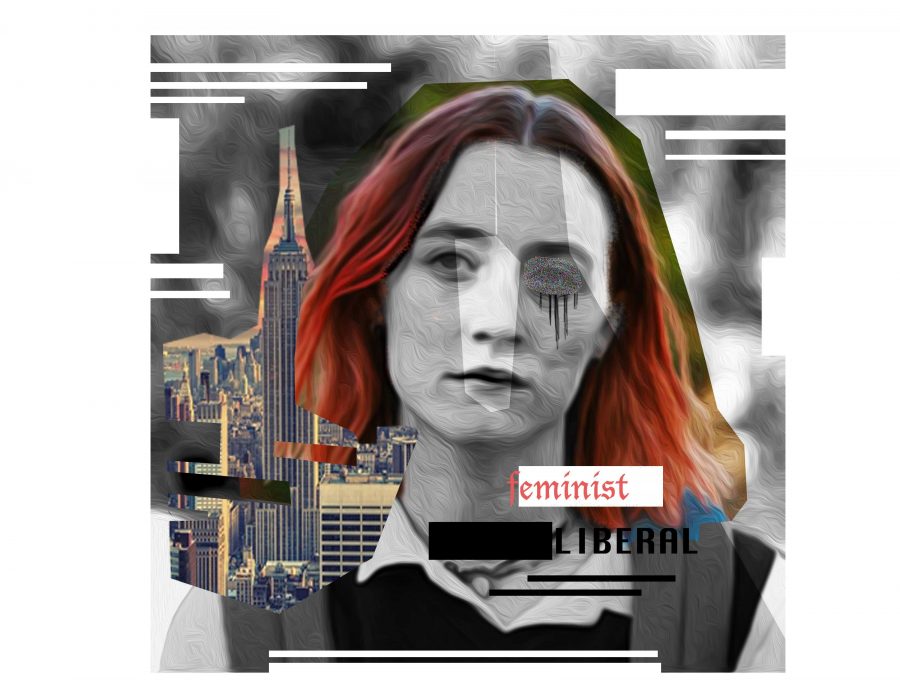Once every ten years or so, a coming-of-age film is released that paves way for an entirely new subgenre of films. Productions like these are timeless, bypassing generational barriers, ringing true to teens and adults alike who can empathize with the characters, laughing at their all-too-familiar quirks, and crying at their painfully real sorrows. Greta Gerwig’s debut film, Lady Bird, is evidently not one of those movies. Lady Bird is a film that everyone loves, but no one can say why. It appears to have some vague political message that would be groundbreaking if it were coherent enough for audiences to understand it, so after seeing the 99% rating on Rotten Tomatoes, people decide to pretend that they do understand it–whatever it is. However, the film’s biggest flaw is hardly its glaringly undeserved praise. In analyzing the reasons why Lady Bird rubbed me the wrong way, I uncovered something not just subpar or overdone, but something new, unprecedented, and bizarrely self-unaware.
Although almost all independent coming-of-age movies have stolen at least partially from predecessors, Lady Bird seems much too close to Mike Mills’ 20th Century Women for comfort (Gerwig ironically starred in that film). The only obvious difference between the two indie hits are the genders of the primary and secondary characters. Interestingly enough, this turns out not to be a difference at all. Christine “Lady Bird” McPherson is, more so than a character, a caricature of archetypal masculinity. Aggressive, confrontational, bold, and stubborn, she is effortlessly breaking her gender role, whether through buying a copy of Playgirl from a convenience store or in the case of sexual interactions, always being the first one to advance. At the risk of oversharing, one could even suggest that the very detail of her first encounter, in which she positions herself on top of her partner, could be construed as a clear hint from the director that Lady Bird is essentially a male character, with everything but her physical appearance to prove it. However, this is far from where the parallels end. To continue the theme of gender role inversion, every important male character in the movie is portrayed as emotionally fragile, submissive, and scatterbrained; these are all negative traits traditionally associated with females (i.e. Marilyn Monroe, Betty Boop, etc.).
In case my readers still haven’t caught on, Lady Bird overtly displays the characteristics of every misogynistic movie, show, or book we all grew up with, praising dominance, machismo, and emotional barricades, consequently shooting down thoughtfulness, empathy, patience, and emotional vulnerability. It should be noted that over the course of the film’s run time, Lady Bird’s father loses his job, escalating his depression; her first boyfriend lies about his sexuality, and cheats on her with another man, and her second boyfriend falsely refers to himself as a virgin, an action that women stereotypically take to please their male partners, while men are known lie about their virginity to protect their “manhood”. As a viewer, I’m unimpressed with Gerwig’s inability to find the importance of both femininity and masculinity, because the truth is that no one is fully masculine or fully feminine, and neither is better or worse than the other. The human mind does not work in such a binary way.
Because of its strong insinuations that one cannot be a strong character unless he/she abandons his/her femininity, Lady Bird has missed the rare chance to change the way feminism is portrayed on the big screen at a pivotal and tumultuous time in history. Unfortunately for Gerwig, fellow Oscar nominees The Shape of Water and Three Billboards greatly outshined Lady Bird in this category. Even ignoring their strong casts and solid screenplays, both of these critically acclaimed films boast triumphant, complex female leads with independently important roles in the plots of their respective films.
What could have been a positive social message has gone horribly wrong, achieving the exact opposite effect of what was perhaps intended. Even disregarding the absurd gender paradox and almost mockingly un-profound attempts to express Gerwig’s aversion to religious and political conservatism, the film’s least attractive quality lies in its pacing and mood. In creating Lady Bird, Gerwig has inadvertently achieved what masters Wes Anderson and Yorgos Lanthimos have spent their careers artistically manipulating: utter blandness. Even in its most passionate scenes, Lady Bird falls short where its “20th Century” counterpart thrives, ending up more like an unintentionally lowbrow scene from 2001’s Ghost World than a humble representation of American adolescence.
Lady Bird – Film Review
By Luca Pelo
♦
Mar 13, 2018
0


